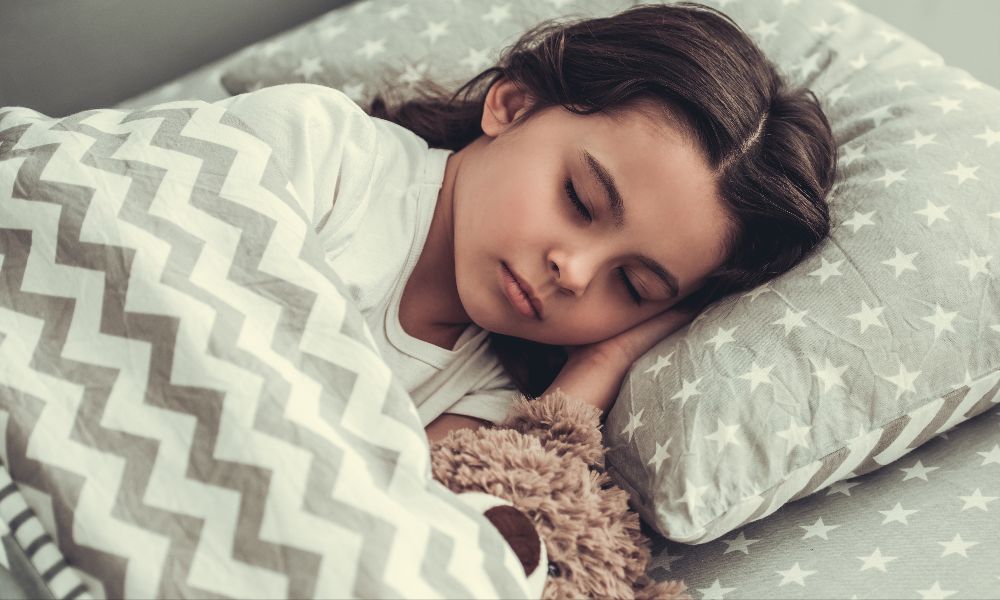Bedtime should be a time of deep calm. A time when kids of all ages gently let go of the day and slide easily into a deep and restful sleep.
But it doesn’t always happen like that.
There are times when falling asleep at night can be a struggle, even a battle. Occasional sleepless nights are normal enough, but if bedtime regularly leaves you exhausted and strung out, with a stressed, exhausted and unhappy child then it’s time to take action.
Waking up to the importance of sleep
According to research collated for a recent BBC Panorama program sleep disorders in children are on the rise. Hospital attendances in England for children under 14 with sleep disorders have tripled in the past 10 years and prescriptions for common sleep medications for children have increased tenfold in the same period.
Shocking statistics, don’t you agree?
Five risks factors associated with poor sleep
A good night’s sleep is nothing less than essential for your child’s physical, mental and emotional wellbeing. Here are just a few of the reasons why:
- Poor sleep in children has been linked to a greater risk of obesity.
- Sleep disorders are known to contribute to lack of emotional control and poor school performance.
- Mental health is generally poorer in children who don’t sleep well. Inadequate sleep can shorten their attention span and bring on ADHD-like symptoms.
- Sleep deprivation can lower the strength of the immune system and increase the chances of your child getting sick.
- The release of growth hormone, essential for growing kids, happens at night.
Luckily hypnosis has a great deal to offer a child who doesn’t sleep well.
Here are three of my top hypnosis hacks that you can try on your own to help get your kids to sleep better.
Three hypnosis tips to get your kids to sleep better
-
Help them enter a calm and quiet mindset at bedtime
First and foremost that means being in a quiet state of mind yourself, even if you have to fake it for a while. Second, put a ban on night time use of electronic devices like IPads that emit light in the blue range and keep the brain in ‘wakeful mode’.
-
Focus their attention on what has been good and positive during the day
It’s always a good idea to help them turn their attention onto what has been good, positive and uplifting. Especially if their day has been particularly challenging or stressful.
Help them come up with at least three things that they have been grateful for, enjoyed, or that they can appreciate about themselves. It sounds such a simple thing to do but going off to sleep focusing on thoughts that are positive and uplifting can make a big impact on the quality of their sleep. -
Make use of their creative imagination as they fall asleep
Whatever the age of your child, bedtime is an excellent time to work with visualisations and positive imagery.
Bedtime is also an excellent time for storytelling, engaging the imagination and helping your child set their intention to have a successful and happy day ahead.
Aim to set aside a few moments each evening before sleep to help your child focus their thoughts on a happy dream time as this will help them to carry a positive vibration into their sleep. For older children, encourage them to set their intention to have a good and positive day ahead.
If you would like some help with this you’ll find my audio book (MP3 or CD) ‘Rest and Sleep’ very useful. It will help your child drift off to sleep feeling calm and reassured.
Of course if you are feeling creative you may like to make up your own guided visualisations for bedtime and you’ll find a range of scripts to guide you here, if you would like some help.
Oh, and one last thing. Did I mention that to get your kids in the right mindset for sleep you need to be calm and relaxed too? So you might even like to try out some of these tips for yourself.



